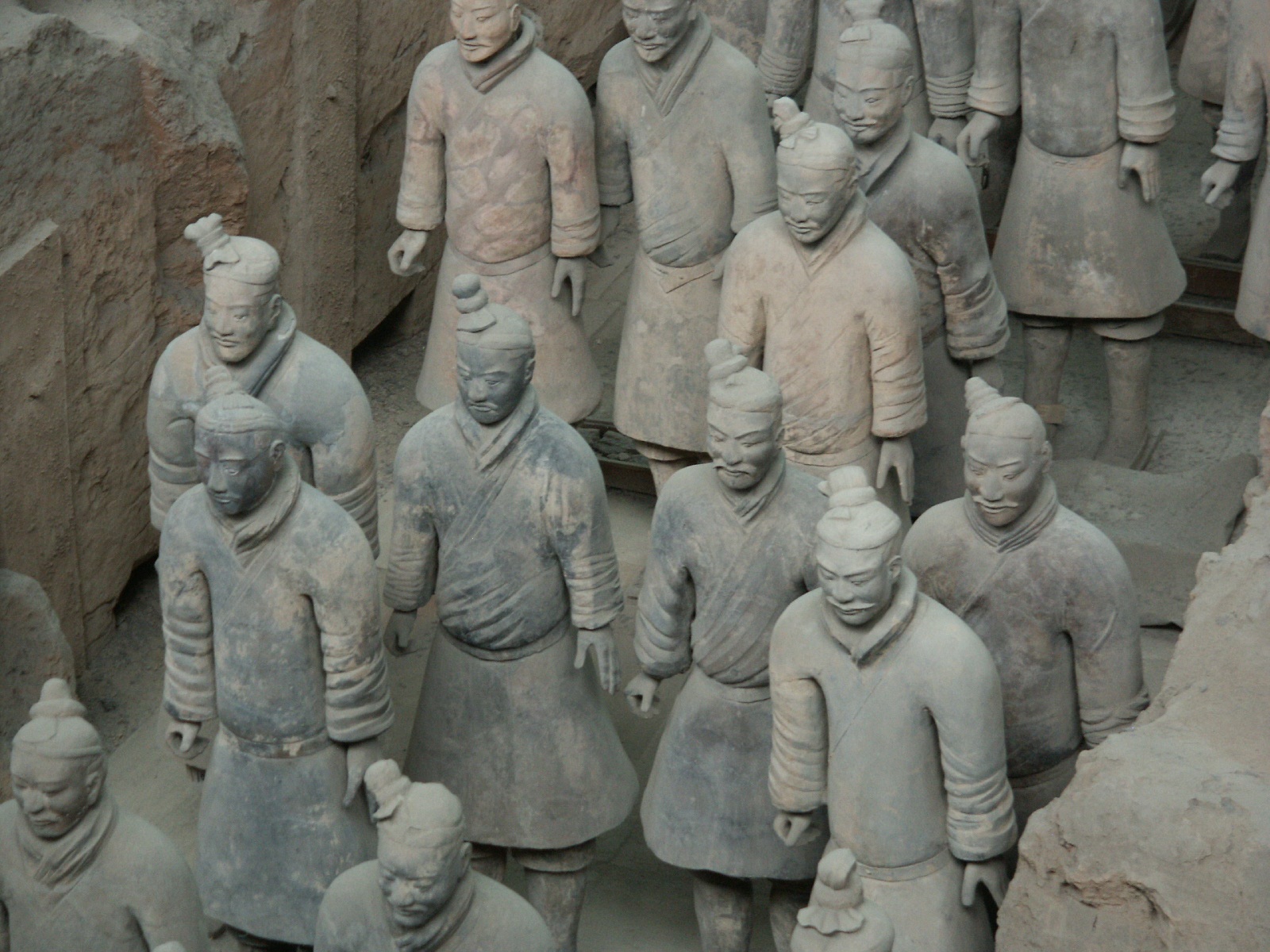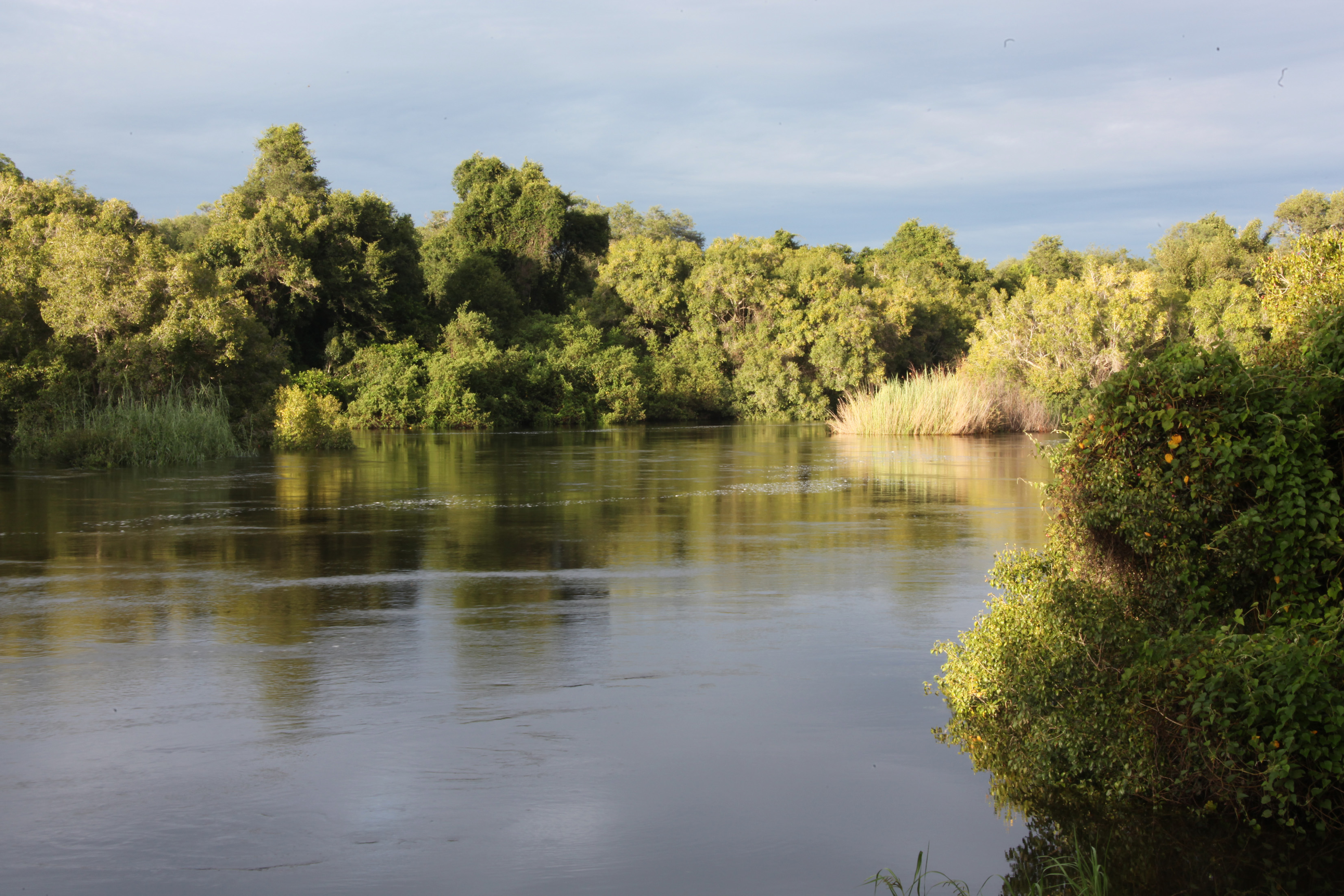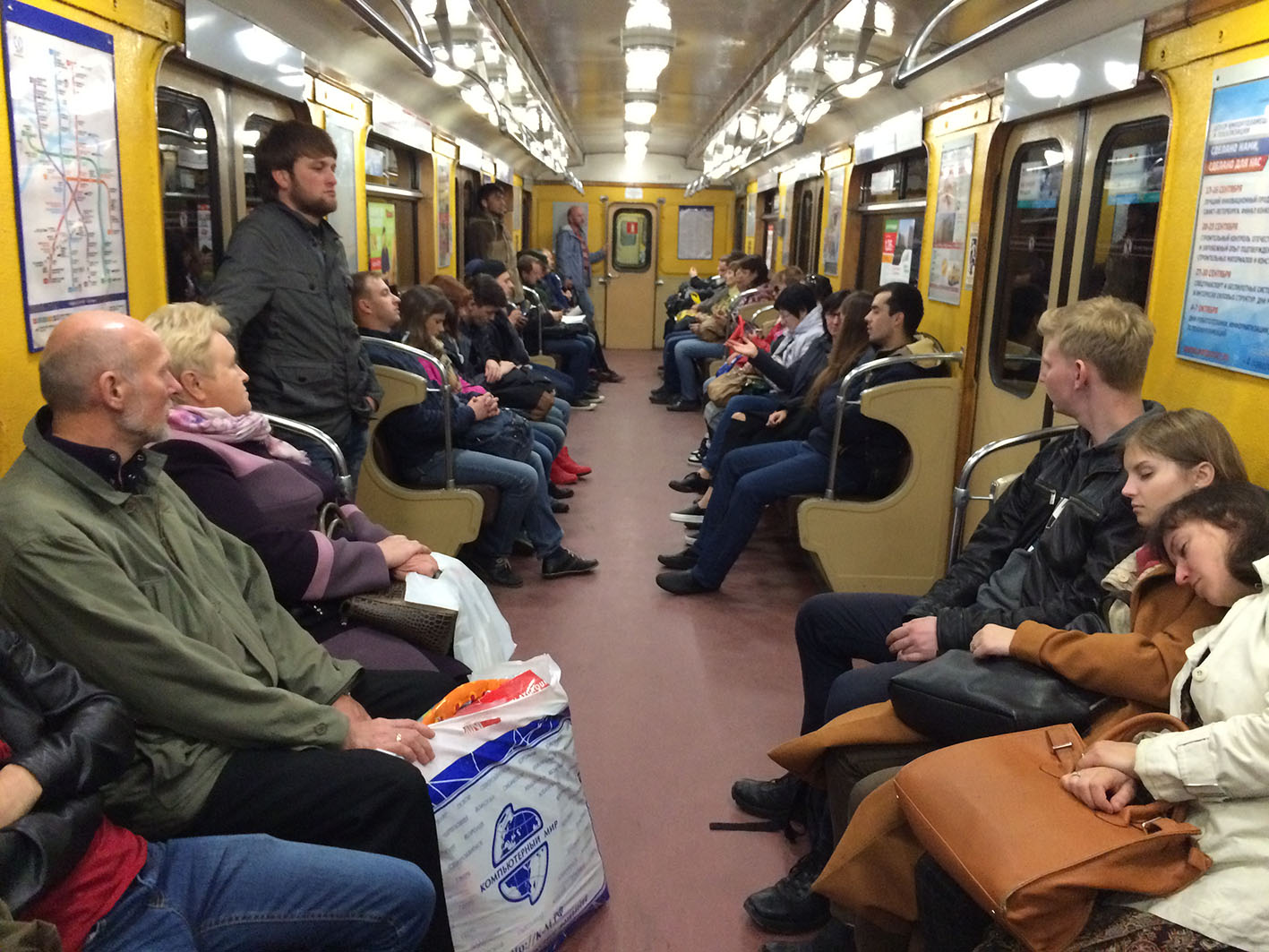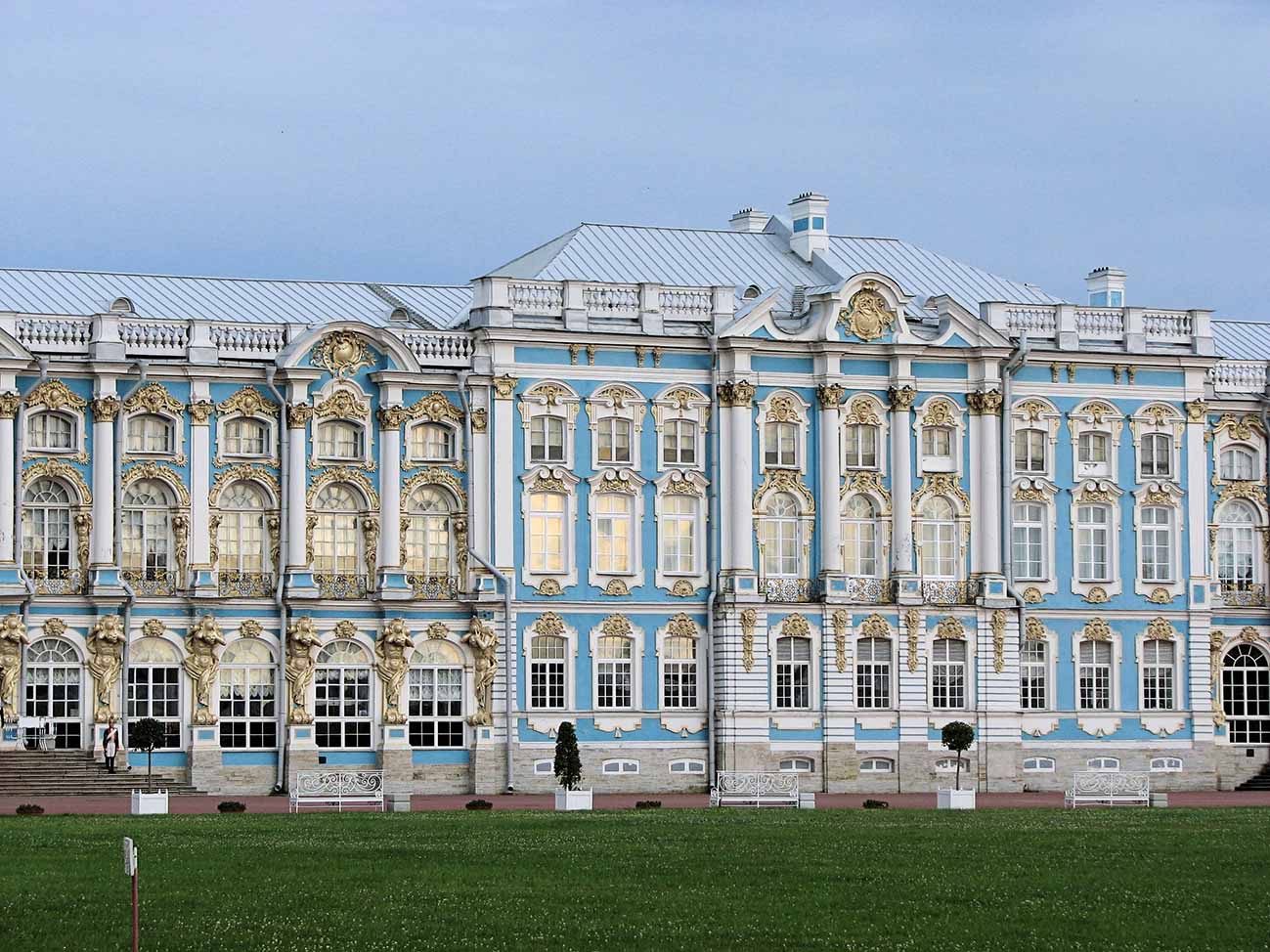
The light is red but my driver’s foot remains glued to the accelerator. Brakes screech. Glass tinkles on the tar as an oncoming truck clips our tail light but he flinches not. Neither does he speak English.
Crouched in the back seat of the taxi, I squeal in the universal language of fright. “Don’t you stop for red lights?” I shriek. Clearly not. Already we have missed a turning, reversed up the pavement, knocked the conical hat off a watermelon hawker, dodged a head-on collision by a hair, with him texting and lighting cigarettes all the while.
I realise I’ve left my passport in my hotel so if I die now and get tossed out on the side of the road, no one will know. I like anonymity but being a foreigner in Tongchuan, Shaanxi province, means I must flex my mime muscles daily. What might Marcel Marceaux have done with “where the hell is my laundry?”
My best efforts that morning had produced only a nervous titter from behind the receptionist’s dainty hand while the manager and his cohorts had openly wept with mirth – but still no reunion with any of my clean clothes.
‘I’m lonely, lonely, low-un-lee,’ warbles a demented voice from car radio. The driver turns up the volume. It’s bizarre how many surreal moments are set to an appropriate song. At breakfast, I’d listened to Auld Lang Syne sung in a Mandarin dialect as I chewed on a cake with all the colour and consistency of volcanic lava. The only other option was the thousand-year-old eggs that looked their age.
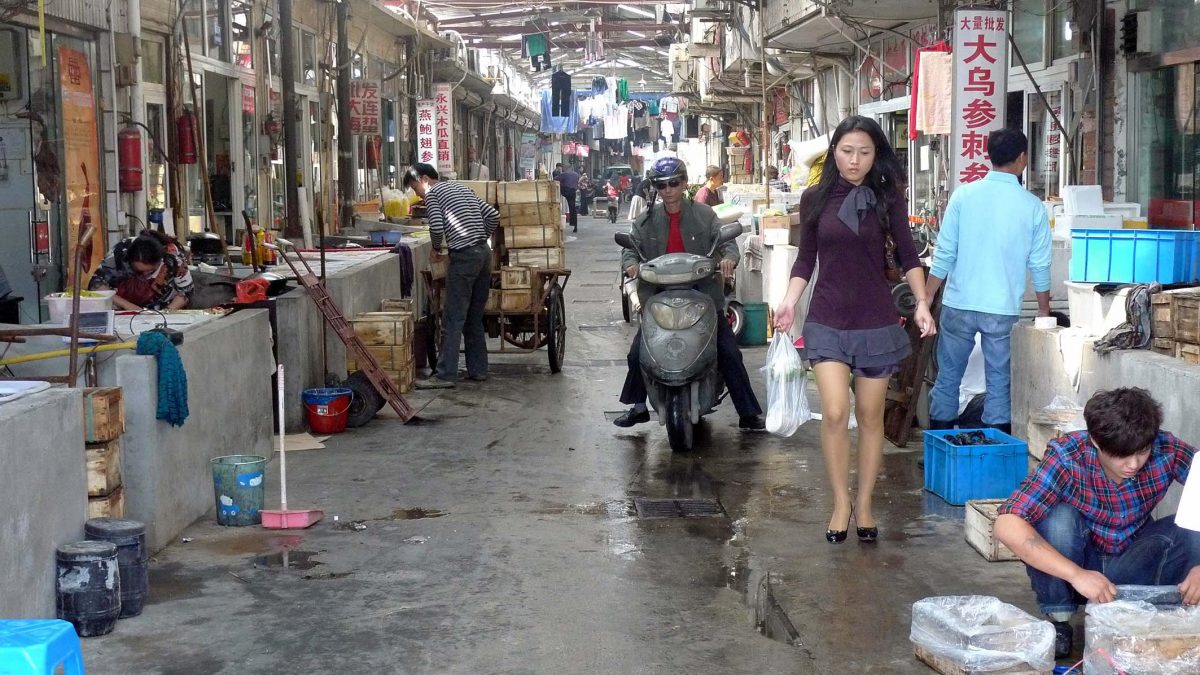
Somehow I arrived alive at the Shengwei cement factory where my husband was inspecting kilns. He took in my pale complexion and warned me not to go anywhere near the toilets to throw up. “You’ll die,” he said cheerfully. I fled behind some bushes instead and, if you’ll pardon a Danish euphemism, “had a chat to Ulrich”.
It was a conversation I was doomed to repeat. Truth is you need a strong stomach to experience the real China. And mine wasn’t up to the task. Not when it came to the lavatories (OMG!) nor when it came to the labyrinthine alleys where fish flapped alongside fake designer sunglasses. Also on sale were dried rats – their scaly tails dangling down the side of a soup bowl – frogs, scorpions, and crickets. A wire cage crammed with dogs awaiting the butcher’s knife broke my heart.
All that fly-infested innards of hapless creatures and the eau d’urine hanging in the sultry air made for a most effective emetic. Later in a restaurant, with an instrumental version of How Much is that Doggie in the Window tinkling in the background, I contemplated the communal spread.
A steamed frog atop a pile of noodles and a chicken with its head still attached, failed to whet my appetite. I stared hard at the selection. Everything stared back. Finally, I selected something that looked like grilled tarantula. It had all the consistency of a mechanical engineer’s jockstrap but another pressing chat with Ulrich ensured not a mouthful made it past my gullet.
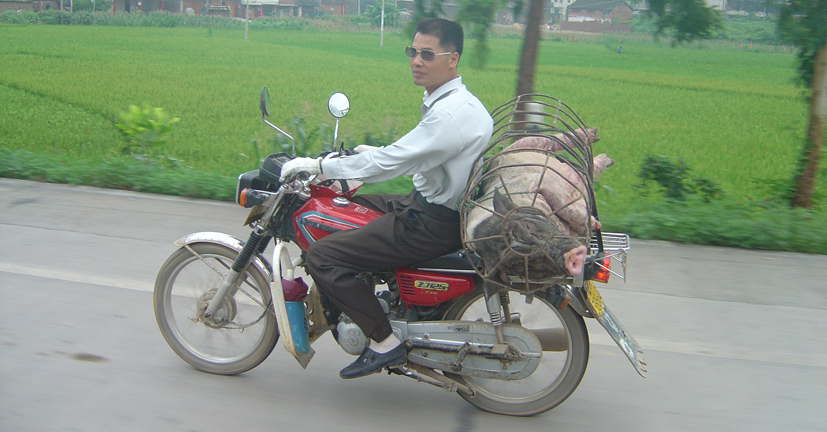
At least in Tongchuan, the locals are lovely. A woman pressed a scented hanky into my hand, before I passed out from some indescribable stench near the market. Our cabbie’s wife on a bicycle returned a valuable camera we had left in a taxi. People are poor but honest.
Xi’an, 103 km south of Tongchuan, has all the ugly skyscrapers that blight so many cities in China but the ancient city wall and bell tower have been preserved. Kites filled the skies at the Big Wild Goose Pagoda, built in 652 to house Buddhist paraphernalia brought from India by a prince called Xuanzang, whose statue stands outside the 64.5 metre high temple.
Most people visit Xi’an to see the Terracotta Warriors, outside the nearby town of Lintong. Not content with hosting the eighth wonder of the world, the authorities have built a Vegas-style pyramid and sphinx. This is overkill.
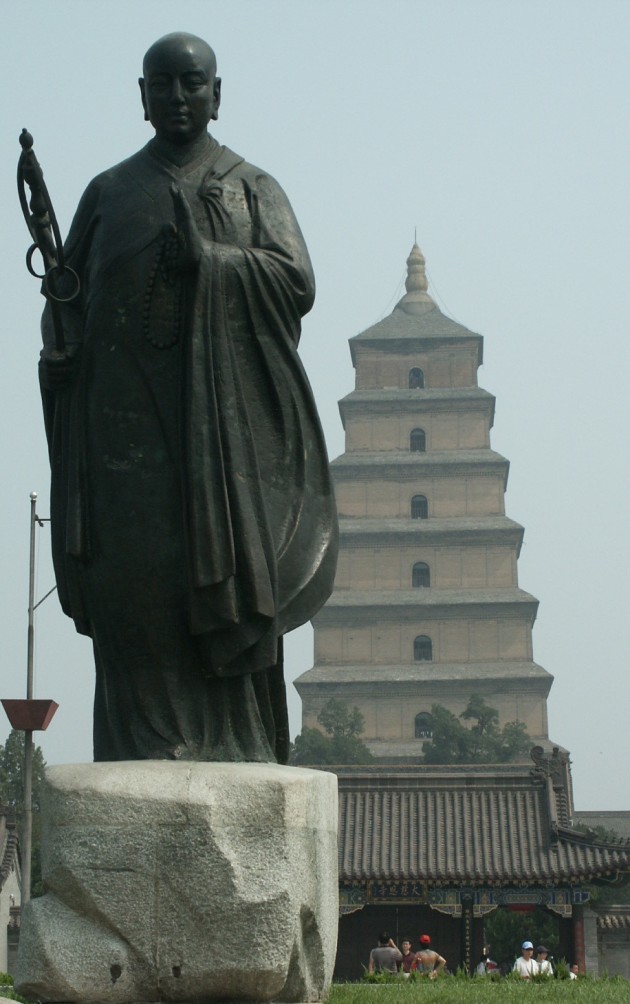
Three Shaanxi peasants digging a well in 1974 struck the tomb of Qin Shi Huang, China’s first emperor who built the Great Wall and united six warring kingdoms into the Dynasty of Qin, pronounced ‘chin’. He created the Terracotta army to protect his tomb – which took 41 years to complete. To protect its secrets Qin Shi Huang ordered the architects, more than 700 000 labourers, and hundred of his concubines to be buried alive inside.
As centuries passed, the earth-covered wooden roof collapsed crushing the terracotta warrors, many of which are still under restoration. Each life-size statue has a distinctive expression and hairstyle. Some gaze about or bow their heads in meditation. Many have crossbows under their arms or arrow quivers slung over their shoulders. The detail is breathtaking, down to the textured soles of their ceramic boots.
China’s impenetrable mysteries beg further exploration. If you can stomach the food, that is.


